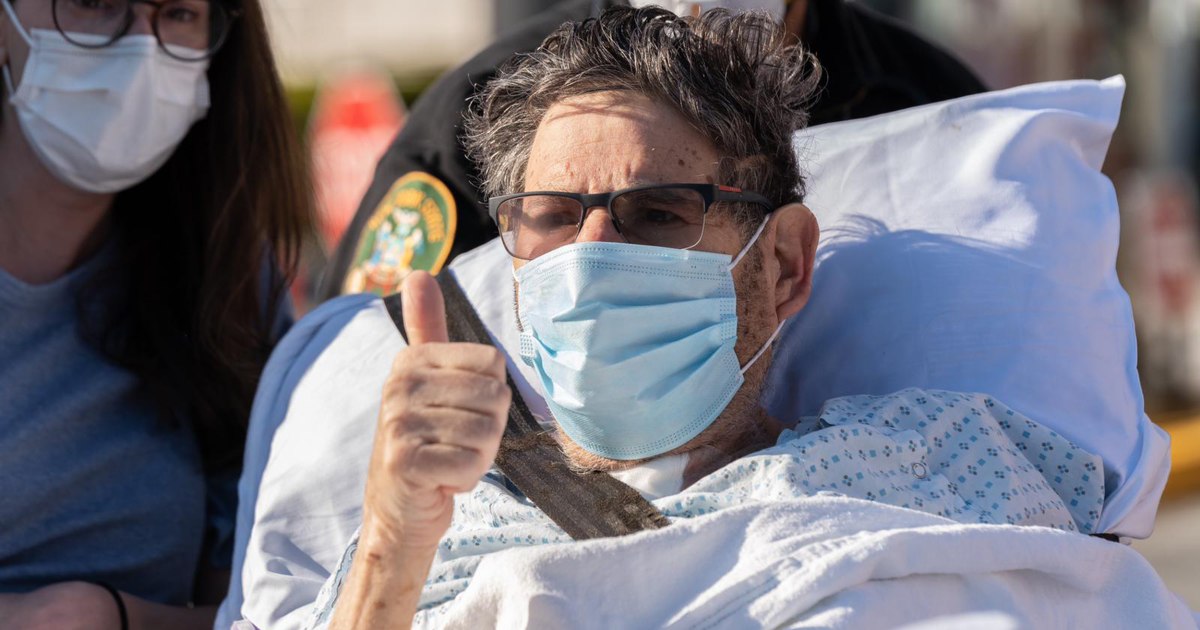
Room 5 of the COVID-19 critical care unit was largely silent, save for the occasional alarms from machines keeping Ron Panzok alive.
Physical examinations were limited to once per day to reduce the chances of spreading the coronavirus responsible for putting Panzok, 66, of New York City, in North Shore University Hospital, part of Northwell Health, on Long Island in mid-March.
It's unlikely that the silence bothered Panzok; he was in a coma, responding to neither doctors nor the therapy meant to help him beat the virus wreaking havoc in his body.
"Who could forget 'Dayenu'?" Panzok's daughter, Amy Harel, said as she chuckled at the memory.
Panzok's physician at North Shore University Hospital said strong connections to family or friends are an important component of intensive care, even for patients in a coma.
The horror of COVID-19 is that it took away most of that," said Dr.
Hugh Cassiere, director of the hospital's cardiothoracic intensive care unit, which has been transformed into a COVID-19 ICU.
Panzok was one of the first COVID-19 patients Cassiere treated.
The virus had spread to at least five other family members, including Harel, but it was Panzok who deteriorated, developing shortness of breath.
Another doctor had already given Panzok hydroxychloroquine, which studies at the time hinted might benefit COVID-19 patients.
Cassiere told Harel he needed her to help prepare the family for Panzok's death.
That emotional conversation, plus the ensuing deluge of COVID-19 patients in his critical care unit, has lead to many sleepless nights for the doctor.
"I'm used to taking care of medically complex patients," Cassiere said.
Once the coronavirus took hold, he said, "100 percent of patients" were like Panzok, with slim odds of ever getting off the ventilator.
To counter that possibility, Cassiere decided to explore using convalescent plasma, the antibody-rich blood product of recovered COVID-19 patients.
"He would not wake up from the medically-induced coma," Harel, Panzok's daughter, said.
Harel recalled that physicians told her that in general, "Either the patients wake up right away, or they never wake up again.".
Either the patients wake up right away, or they never wake up again.
"I think if you are the kind of person who believes in God or has faith," Harel said, "you like to think there is a higher being.".
Five weeks into his coma, Panzok started to move.
A nurse called Panzok's wife, Bonnie, who was with Harel at the time, and asked him to say something to his family.
Eight weeks after he entered the hospital, Panzok was ready to leave.
Susan Maltser, medical director of the department of physical medicine and rehabilitation at Glen Cove Hospital on Long Island, where Panzok is currently in rehabilitation.
Half are designated for post-ICU COVID-19 patients
Patients like Panzok get about three hours of rehabilitation therapy each day, for about three weeks